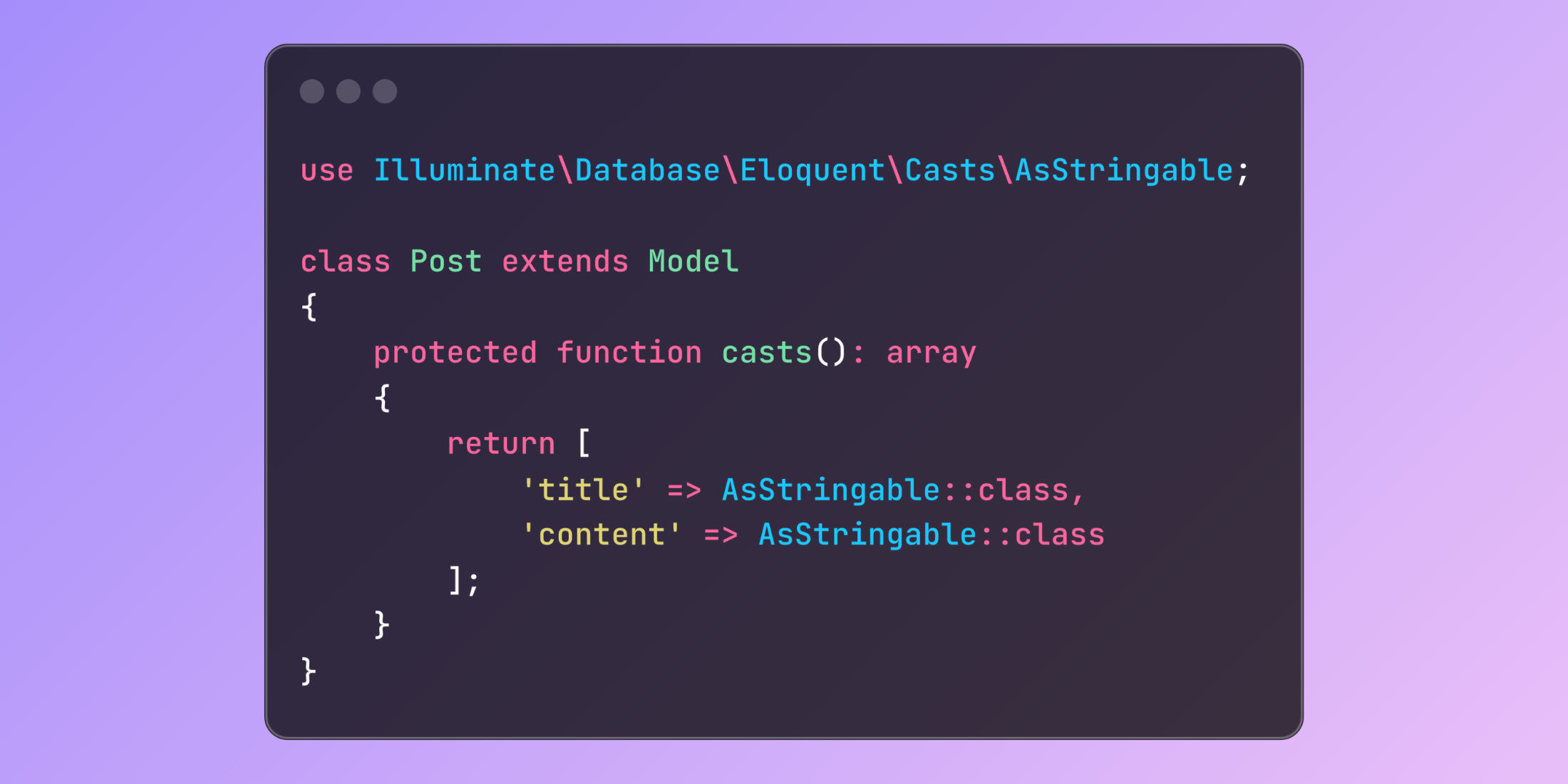Laravel's AsStringable cast is a powerful tool that can significantly enhance how you work with string attributes in your Eloquent models. By transforming your string attributes into Stringable objects, you gain access to a wide array of string manipulation methods, leading to cleaner and more expressive code.
This approach is particularly valuable for content-heavy applications where string manipulation is frequent, helping you maintain cleaner controllers and views.
use Illuminate\Database\Eloquent\Casts\AsStringable; class Post extends Model{ protected function casts(): array { return [ 'title' => AsStringable::class, 'content' => AsStringable::class ]; }}Here's a practical example of a content management system:
<?php namespace App\Models; use Illuminate\Database\Eloquent\Model;use Illuminate\Database\Eloquent\Casts\AsStringable; class Article extends Model{ protected function casts(): array { return [ 'title' => AsStringable::class, 'content' => AsStringable::class, 'meta_description' => AsStringable::class ]; } public function getSnippetAttribute() { return $this->content ->stripTags() ->words(30, '...'); } public function getUrlPathAttribute() { return $this->title ->slug() ->prepend('/articles/'); } public function getFormattedContentAttribute() { return $this->content ->markdown() ->replaceMatches('/\@mention\((.*?)\)/', '<a href="/users/$1">@$1</a>') ->replace('[[', '<mark>') ->replace(']]', '</mark>'); } public function getSeoTitleAttribute() { return $this->title ->title() ->limit(60); }}$article = Article::find(1);// Access Stringable methods directlydd($article->title->title());dd($article->content->words(20)); // Use computed attributesdd($article->snippet);dd($article->url_path);dd($article->formatted_content);The AsStringable cast transforms string handling into an elegant, method-chaining experience while keeping your code clean and maintainable.

















